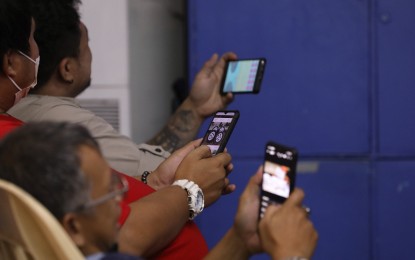
File photo
MANILA – For members of the House of Representatives, regulating social media content demands a “very delicate” balance between oversight and the preservation of freedom of expression.
“This is not a new request,” Davao Oriental 2nd District Representative Cheeno Miguel Almario said in a press conference on Wednesday, referring to the Kapisanan ng Social Media Broadcasters ng Pilipinas Inc.’s (KSMBPI) call on Congress to enact a regulatory body that will oversee and evaluate social media content.
The KSMBPI also called on Malacañang through Executive Secretary Lucas Bersamin to draft an interim executive order for the creation of a "national social media regulatory board" until formal legislation is enacted.
“Many governments and entities worldwide have attempted to regulate social media, but it raises the question: How far are you willing to regulate freedom of information and freedom of speech?,” Almario said.
Almario recognized the complexity of the issue, assuring the public that any potential regulatory measures would be thoroughly researched and subject to hearings in the House of Representatives.
“We cannot discount the freedom of information that is a constitutional right of any Filipino person,” he said.
House Deputy Majority Leader and Tingog Party-list Rep. Jude Acidre agreed that the proposal needs “a very delicate balancing act of ensuring regulation and the freedom of expression and the freedom of information.”
Rather than direct regulation, Acidre said the focus should be on ensuring that safeguards are in place, like implementing measures such as age restrictions for social media account holders to mitigate potential risks associated with online interactions.
He stressed the importance of verification processes to combat cybercrimes and cyber libel.
“In most cases, cybercrime, cyber libel or any of these, they thrive because of anonymity, kasi hindi sila kilala (because they are unidentified),” Acidre said.
Acidre said there is also a need for government to invest in digital citizenship by informing users and promoting responsible usage.
“Social media is only as strong, is only as discerning as the users, na (that) they are trained, they are capable of discerning whether totoo nga ‘yun nandiyan sa social media or hindi (whether or not those social media content are true),” Acidre said.
Not absolute
He said while freedom of expression is a fundamental right, it is not absolute.
Almario also emphasized the importance of verifying information authenticity amid the prevalence of fake news, especially the spread of deepfakes.
He cited the SIM Card Registration Act as a potential model for addressing this issue, suggesting that similar measures could be implemented to identify individuals disseminating information on social media.
“Maybe one of the good ways to move forward is to have verified accounts on social media,” Almario said.
“This may require cooperation from various national agencies such as the DICT (Department of Information and Communications Technology), NBI (National Bureau of Investigation), cyber security agencies, and CICC (Cyberbrime Investigation and Coordinating Center) to authenticate social media users,” he added.
Lanao del Norte 2nd District Rep. Mohamad Khalid Dimaporo said the issue should “be treated urgently and seriously in this Congress.”
“At least have the discussion about it. On my part, I would like to see how Congress would delineate the line between free speech and public safety,” he said.
“Free speech or disinformation or fake news can be bad for the general public if it causes fear,” he added.
He underscored the importance of identifying the sources of such misinformation, warning of the potential for malicious intent to destabilize the government.
Dimaporo also expressed concern over the weaponization of social media, stressing its capacity to sow fear among the public. (PNA)
 The Philippine News Agency is a web-based newswire service of the Philippine government under the supervision of the News and Information Bureau (NIB) of the Presidential Communications Office (PCO).
The Philippine News Agency is a web-based newswire service of the Philippine government under the supervision of the News and Information Bureau (NIB) of the Presidential Communications Office (PCO).